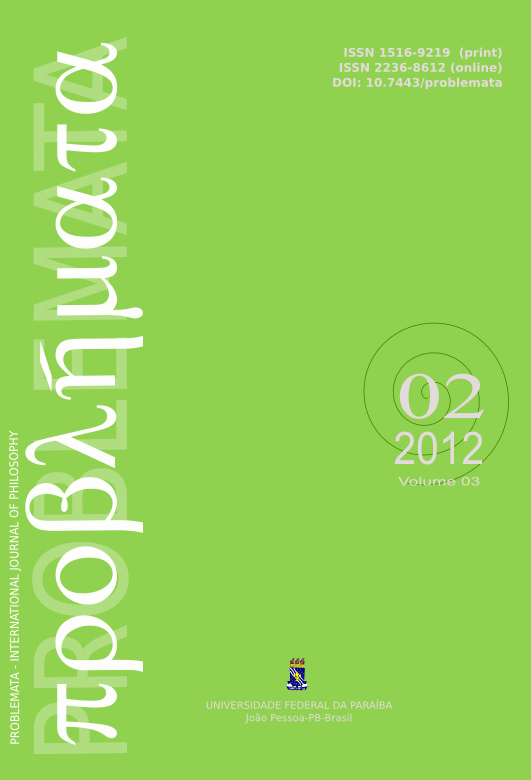THE PHYSICAL SPACE OF THE PUBLIC OPINION: NOTES ON JOURNALISM AND ARCHITECTURE<a href="http://dx.doi.org/10.7443/problemata.v3i2.14954"><i> <b>[doi: 10.7443/problemata.v3i2.14954]</b></i></a>
DOI:
https://doi.org/10.7443/problemata.v3i2.14954Abstract
In 2012 we are expected to remember and celebrate the fifty years anniversary of the book Strukturwandel der Öffentlichkeit. In the following paper we aim to join some arguments in order to explain the reasons of the academic and editorial success of this text, published in Germany, in 1962, and we thereby want to assume that “public sphere” is the central theme and Leitmotiv of the entire intellectual work of its author, Jürgen Habermas. We will then make some considerations about the history of journalism and public opinion in Brazil in nineteenth and twentieth centuries, and beside this we are going to examine how the concept of “public sphere” (or public space) has been accepted in different theory fields such as mass communication studies and architecture. Finally, based on some experiences and reflections on urban interventions, we would like to propose a return to the “physical space” of public sphere and, by doing that, we also bring back some original critical ideas from Oskar Negt and Alexander Kluge, concerning their research on “Öffentlichkeit” as a general concept that should also include the proletarian public sphere.
Downloads
Downloads
Published
Issue
Section
License
Authors who publish with this journal agree to the following terms:
- Authors retain copyright and grant the journal right of first publication with the work simultaneously licensed under a Creative Commons Attribution License that allows others to share the work with an acknowledgement of the work's authorship and initial publication in this journal.
- Authors are able to enter into separate, additional contractual arrangements for the non-exclusive distribution of the journal's published version of the work (e.g., post it to an institutional repository or publish it in a book), with an acknowledgement of its initial publication in this journal.
-
- Authors are permitted and encouraged to post their work online (e.g., in institutional repositories or on their website) prior to and during the submission process, as it can lead to productive exchanges, as well as earlier and greater citation of published work (See The Effect of Open Access).





